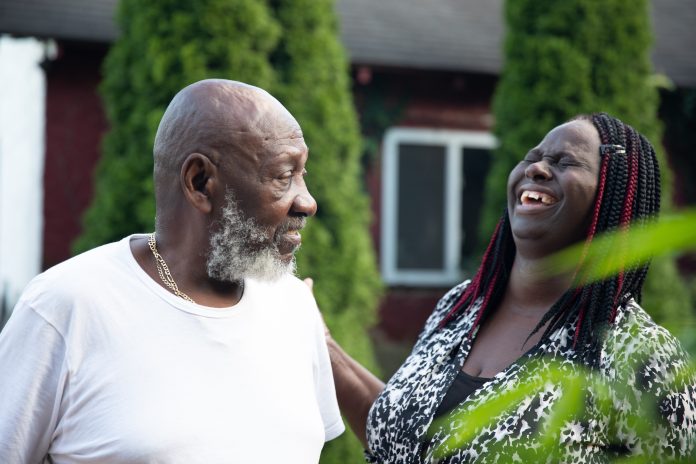Personalized in-home care is revolutionizing the way we support and care for our senior population. By tailoring care plans to meet the unique needs of each individual, this approach enhances overall well-being and fosters independence.
According to BioMed Central, the desire of older adults to remain in their own homes for as long as possible, despite limitations to their autonomy, is a growing trend. In response to this preference, home care services have emerged as a viable option, enabling older adults to age gracefully in familiar surroundings.
In this article, we explore the science behind personalized in-home care for seniors and how it contributes to their physical, emotional, and mental well-being.
Addressing Senior-Specific Requirements
Personalized senior in-home care starts with a comprehensive assessment of their specific needs. Trained professionals, such as geriatric care managers or nurses, evaluate factors like medical conditions, mobility limitations, cognitive abilities, and emotional health. This assessment forms the foundation for developing a customized care plan that ensures seniors receive the tailored support and assistance they require.
According to Always Best Care, addressing senior-specific requirements is a fundamental aspect of personalized care. By conducting a comprehensive assessment, professionals can gain a deeper understanding of each senior’s unique needs and develop a care plan that caters to their specific circumstances.
Promoting Physical Health
Regular physical activity, as highlighted by the Centers for Disease Control and Prevention (CDC), plays a vital role in preventing or delaying age-related health issues. Engaging in physical activity helps seniors maintain their independence by strengthening muscles and enabling them to perform daily activities without excessive reliance on others.
Personalized in-home care places great emphasis on maintaining and improving seniors’ physical health. Caregivers collaborate with healthcare professionals to design exercise routines that cater to seniors’ abilities, assisting them in performing activities that enhance strength, flexibility, and balance.
They also provide support with daily activities such as bathing, grooming, and medication management, enabling seniors to maintain their independence and age gracefully in the comfort of their own homes.
Nurturing an Emotional Connection
Beyond physical health, personalized in-home care recognizes the importance of emotional and mental well-being for seniors. According to the NIH, as people become older, they spend more time at home alone. Being lonely or socially excluded is bad for their health.
Caregivers establish meaningful connections with seniors, fostering trust, companionship, and emotional support.
They engage seniors in stimulating conversations, memory games, puzzles, and other activities that provide mental stimulation and combat feelings of loneliness and cognitive decline.
Implementing Best Practices and Innovations
Personalized in-home care for seniors places a strong emphasis on implementing best practices and incorporating innovative approaches. Care providers actively stay abreast of advancements in geriatric healthcare and caregiving, continuously updating their knowledge and skills.
By remaining informed about the latest research findings and innovations in the field, caregivers ensure that the care they deliver is aligned with the highest standards. They integrate evidence-based practices into their caregiving routines, leveraging proven strategies that have demonstrated positive outcomes for seniors.
This commitment to staying current with best practices and embracing innovations enhances the quality and effectiveness of in-home care services, ultimately leading to improved well-being outcomes for seniors.
Collaborative Approach for Comprehensive Care
Recognizing the complexity of senior care, personalized in-home care adopts a collaborative approach that involves various stakeholders. Family members, healthcare professionals, and other support systems play essential roles in the well-being of seniors, and their input is valued and sought after.
Caregivers actively communicate and coordinate with these stakeholders to ensure a comprehensive and holistic care experience for seniors. Healthcare professionals contribute their expertise and guidance, ensuring that medical needs and treatments are integrated into the care plan effectively. By bringing together the collective wisdom and experience of various stakeholders, personalized in-home care optimizes the well-being and satisfaction of seniors.
Furthermore, this collaborative approach allows for ongoing adjustments to the care plan as seniors’ needs evolve over time. This proactive and flexible approach ensures that seniors receive comprehensive and individualized care, addressing their evolving requirements and prioritizing their overall well-being.
Summary
Personalized in-home care for elders has developed as a game-changing method that focuses on individuals’ specific needs and preferences. This type of care fosters independence, happiness, and a sense of familiarity by acknowledging older individuals’ desire to age in the comfort of their own homes.
Caregivers improve elders’ emotional, physical, and mental health via rigorous examinations, individualized exercise regimens, and emotional support. Personalized in-home care delivers a complete and flexible care experience by remaining current on best practices and encouraging collaboration among stakeholders.
Finally, this strategy revolutionizes senior care by providing a tailored and empowered solution that maximizes seniors’ well-being and contentment.

























